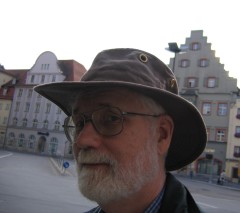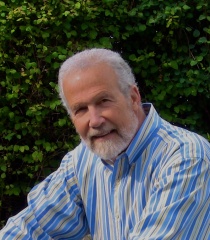Understanding the fascination of the marathon terror
Why do terrorism and rampage killing exert such hypnotic fascination?
Attacks on schoolchildren and marathon fans arouse “horror.” But the actual carnage (5 deaths, many injuries) is eclipsed by Massachusetts’ 334 routine auto deaths (California and ten-gallon Texas rack up an annual 3,000+ each). The news doesn’t even try to report them all, and they certainly don’t hold viewers spellbound for hours of monotonous, inconclusive TV reporting.
Some answers are in plain sight. Terrorism is spectacle. The attacks are designed to catch maximum attention. Many rampage murders are copycat crimes. The killers are in theory “berserk” and out of control, yet often evidence shows they’re aware of, and competing with, previous sensations.[1] This was true of the Columbine killers, and even Adam Lanza, the Newtown killer, compiled data on past rampage slaughter as you might collect baseball statistics. Terrorists deliberately design displays of spectacular death. How excited bin Laden must have been to know that on US TV “his” airliners were still regularly exploding into the twin towers weeks and months after the event. For the terrorist, that film clip powered an ad campaign that changed mental landscapes like the famous Macdonald’s jingles that toddlers recite by heart.
In this respect the Tsarnaev brothers were drawn into the creative mania that brought Barnum and Bailey to your town, or planned the Roman amphitheater’s gala gladiatorial combats, criminal executions, battle reenactments, and “hunts” that slaughtered hundreds of wild animals. We regard those Roman crowds as bloodthirsty primitives, yet terrorist spectacle appeals to the same motives. There’s pity and terror galore, spiced by the insinuation that the danger in front of your eyes is unique, unprecedented, possibly out of control. It could happen to me. The violence challenges police, insurance, doctors, criminal justice: all the technologies that we use to protect ourselves from the reality that we too can—in fact definitely will someday—die. In our imaginative participation, the story onscreen is about “trying out” death or playing dead and being rescued back to life. In the safety of your living room the events onscreen are vicarious and only half-real. But the emotions are doing real work in reframing what’s possible in life and reassuring you that you’re safe.
As the drama onscreen unfolds, our daily grind gives way to vicarious shock at the possibility that we too can die in a freakish moment. But the coverage is staged to allow us to participate vicariously in heroic rescue from death by hunting down the criminal. The hope is that “one of the biggest manhunts in American history” gives our lives memorable significance. State Rep. John Scibak claimed that the attack “was a different act of terrorism than we’ve seen before,” and “literally and legitimately” shut down Boston. Note that “legitimately”: the word tells us that emergency reactions can be routine false alarms.
But the spellbound spectators aren’t “shut down” at all. “We” form a vicarious posse invited to contribute information, but also caught up in the hunt for an enemy who is now our quarry. Pictures of armed paramilitary police fill every screen. “Suspects” come into focus; overnight they’re pursued into a firefight, killing one enemy and one cop and wounding another officer. There’s vindictive satisfaction in this hunt. [2] We want to believe that death and terror make sense: that an evil someone has violated the sense of “what is right” on which we’ve grounded our personalities since infancy. The killers’ outraged uncle tells the media that his nephew “deserved to die.” Vengeance promises to restore “what is right” even as death has injured it. It’s how we’re built. We demand, and get, “reasons” to reinforce our account of reality.
Finally “we” have the surviving criminal holed up in a boat, wounded, and then in custody. The news reports that he was a sociable college kid, perhaps under the influence of a more hostile older brother. He was also apparently flunking out of school, so the fear of failure and social death may have been a cause of, and/or result of, the lure of terrorist ambitions. All told, a pitiful as well as cruel character.
Media carry our curiosity about criminal motives to Chechnya and, gingerly, to the “war on terror.” Op-eds suggest that the torment of Chechen refugees may have resonated with the Tsarnaev brothers. Whatever the motives, we have on our hands now a pathetic kid whose life is over, even if the we don’t kill him. He enters the poisonous cloud of self-justification and loathing that surrounds infamy.
So the logic of maiming and death ripples outward into the absurd mysteries of denial. In one direction the absurdity of the Marathon as hunt connects to the Euro-American quest for access to the world’s oil riches implicated in so much 20th century bloodshed and still raising havoc in the middle east and the Caucasus. About the time the young Tsarnaev was born in Kazakhstan, I was there doing some work for the Peace Corps and overhearing US officials discussing Kazakh sour crude oil. It was just the beginning.
A recent investigative commission reminds us that the Bush-Cheney “war on terror”not only terrorized Iraq on false pretenses, but also took us into the criminal practice of torture. We know that for many in those anguished regions of the world, Americans have a reputation for viciousness, even if we don’t yet know how that reputation may have affected the Tsarnaev brothers.[3]
But there’s another dimension to this absurdity. Pathetic young men ambitious for heroic self-esteem place ridiculous pressure-cooker bombs at the finish line of a race built around the human need to test the ability of our bodies to outrun death. Paleontologists speculate that early humans found evolutionary advantage in walking upright and the ability to run long distances as effective hunters. Warrior-hunters have long identified with jaguars and tigers. In this context, the marathon is a survival contest, and wittingly or not, the terrorists were joining in, and exploiting, this atavistic hunt.
Step back from the hypnotic anxiety of exploding pressure-cookers, and you begin to sense the pathetic inadequacy of our public chatter to account for the moral daze and tragic suffering of criminals and their blind victims joined in a moment of contemptible folly that cries out for clarity and compassion.
1. For an account of this mentality, have a look at my Berserk Style in American Culture (2011).
2. In Escape from Evil, Ernest Becker argues that human violence springs from our uniquely human death-anxiety. The Ernest Becker Foundation’s website assembles indispensable resources for thinking about violence. <<www.ernestbecker.org/
2. http://readersupportednews.org/opinion2/357-europe/17036-chechen-terrorists-and-the-neocons









